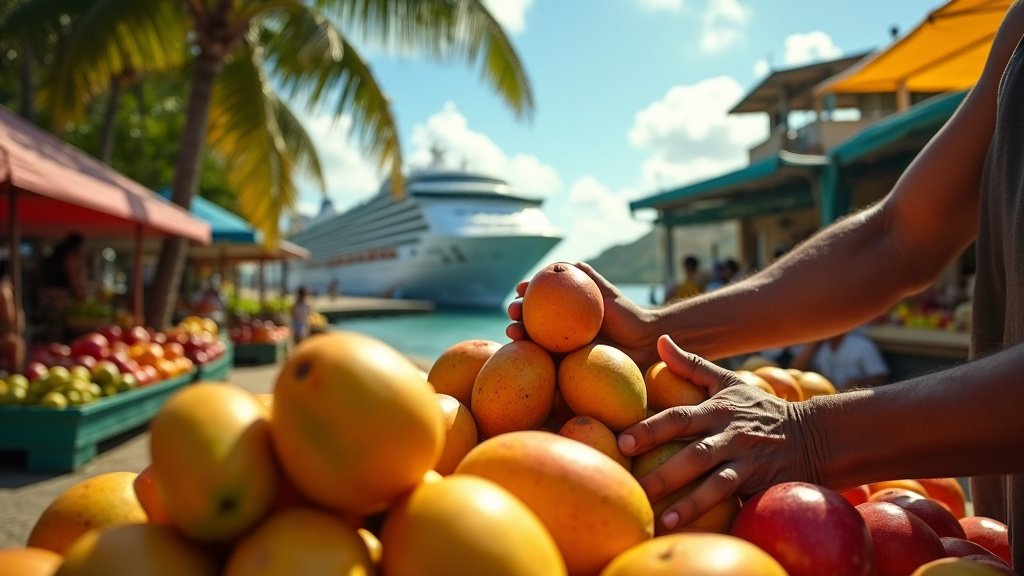Kingston, Jamaica – The Ministry of Tourism is actively pursuing a surge in cruise tourism, a strategic move poised to significantly impact Jamaica’s economic landscape. This initiative, officials say, is designed to bolster crucial sectors, providing a vital stimulus for growth and development across the island nation.
Cruise Tourism: A Cornerstone of Jamaican Tourism
Cruise tourism already represents a substantial segment of the overall tourism industry in Jamaica. The sector’s importance to the island’s economy cannot be overstated. While specific figures fluctuate, the impact of cruise passengers, in terms of direct spending and wider economic contributions, is considerable. The Ministry’s targeted increase in cruise arrivals underscores a recognition of the sector’s potential to drive revenue and create opportunities.
This sector accounts for a significant number of tourists to the island [5]. This underscores the government’s strategic focus on attracting more cruise visitors. The numbers, though subject to fluctuations based on global trends and external factors, consistently demonstrate the cruise industry’s integral role in supporting Jamaica’s tourism infrastructure and related employment. The government anticipates a rise in jobs and revenue as a direct result of increased cruise tourism.
Agriculture: Cultivating Growth Through Tourism
The anticipated influx of cruise tourists is expected to yield substantial benefits for Jamaica’s agriculture sector [5]. The demand for fresh, locally sourced produce will inevitably rise as cruise ships and related establishments cater to the increased number of visitors. This heightened demand offers Jamaican farmers a significant opportunity to expand their operations, increase production, and generate greater income.
The relationship between the tourism and agricultural sectors is a symbiotic one. Local farmers will be encouraged to supply cruise lines with agricultural products like fresh fruits, vegetables, and other produce. Increased demand will also stimulate investment in agricultural infrastructure, leading to improved farming practices, increased yields, and a more robust agricultural economy. Diversification of crops to meet the specific demands of cruise ship cuisine will also become a priority. This will involve farmers in strategic planning, focusing on growing crops that can be readily integrated into cruise line menus.
Manufacturing: Producing for the Future
The manufacturing sector is also set to experience a positive impact, directly linked to the anticipated growth in cruise tourism [5]. Increased tourism often fuels demand for manufactured goods, including souvenirs, handicrafts, and other products that cater to the needs and preferences of cruise passengers. This surge in demand will act as a catalyst for the expansion of existing manufacturing facilities and the potential establishment of new ones.
Manufacturers will be encouraged to produce goods specific to the cruise market. The manufacture of textiles, artwork, and crafted items all provide avenues for direct involvement in the tourism economy. Furthermore, the increased demand for supplies will indirectly benefit various segments of the manufacturing sector, creating jobs and stimulating innovation. This is likely to lead to greater investment in product development and marketing, enabling Jamaican manufacturers to compete more effectively in the global tourism market.
The Long-Term Vision
The Ministry of Tourism’s focus on boosting cruise tourism is part of a broader, long-term strategy for sustainable economic development. By leveraging the potential of the cruise industry, Jamaica aims to diversify its economy, create employment opportunities, and improve the overall quality of life for its citizens. The initiative’s success will depend on effective coordination between the government, the private sector, and local communities, ensuring that the benefits of increased tourism are widely shared. The anticipated boost in both agriculture and manufacturing will be key indicators in measuring the initiative’s success.

